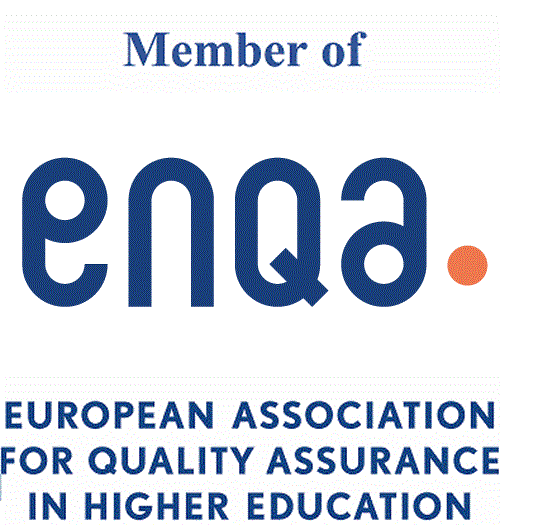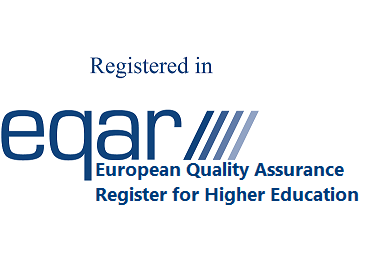On December 6, as part of ANQA’s 15th anniversary events, the VET conference "Economic growth through Skill Development" took place in the American University of Armenia. The event provided a unique platform to bring together the representatives from the state, the labour market, VET institutions and stakeholders to discuss good practices and challenges in skill development. 250 representatives from 87 institutions took part in the conference, with employers comprising approximately 30% of the participants. The conference participants were welcomed by ANQA Director Ruben Topchyan, Deputy Minister of RA MoESCS Araksia Svajyan and AUA’s Dean of General Education Sharistan Melkonyan.
"It is essential not just to provide education but also consider the skills we instill in the country. Maybe we're bolstering skills in an area that is already oversaturated. Maybe it’s time to reconsider our approach? There are many more practical directions that our country lacks today. In this regard, VET institutions’ role is invaluable, as they equip students with the professional skills required by the employer. Furthermore, cooperation with local employers is crucial. It is natural that the state cannot take care of all the institutions and provide the resources necessary for the formation of these skills. I believe it is important that both the state supports the employer and the employer tries to interest the education institution”, mentioned Ruben Topchyan, highlighting that for the formation of professional skills directly applicable in the employer's domain, the assignment criteria should meet the employer's environment and requirements.
Deputy Minister of RA MoESCS Araksia Svajyan noted in her welcome speech that the conference holds a crucial role in guiding changes in VET education. Ms Svajyan highlighted the VET institutions’ accreditation from the perspective of continuous enhancement of educational processes and formation of a skilled workforce, “Accreditation offers the state, the applicants, and the international community the opportunity to demonstrate the education quality provided by the given institution. On the other hand, it is also a mechanism for self-evaluation and identification of issues. This enables the institution to record its current strengths, pinpoint existing issues, and determine necessary steps for their solution". The Deputy Minister also urged cooperation between VET institutions and employers, stating that the adoption of the law "Vocational Education and Training" would establish more favourable conditions for cooperation. "We attach great importance to the adoption of this law, as it will bring fundamental changes in VET education. The new law will also provide an opportunity to enhance cooperation with employers. It will stimulate the employers’ interest, enabling us to change the education quality and endeavour to prepare specialists tailored to their needs. While informal and continuous education are important, vocational education is of even greater significance, offering the chance for a more comprehensive development of knowledge, competences and skills”, noted Ms Svajyan.
AUA’s Dean of General Education Sharistan Melkonyan also welcomed the conference participants, attaching importance to the role of VET in strengthening the country. "VET institutions play an indispensable role in preparing citizens and skilled workforce", mentioned Ms Melkonyan.
“The development of the country and the rise of economic indicators hinge not on the population growth, but on the education and skill levels within the society. An educated person adapts to changes and embraces the latest technologies more rapidly, contributing to the economic development and increase in GDP”, noted Anahit Terteryan, specialist at ANQA’s Institutional and Programme Accreditation Division, in her presentation "Innovation, Entrepreneurship and VET System: How to Take Part in Economic Growth”, sharing the statistical data and challenges of the sector.
In this context, a special importance was attached to quality assurance as it:
- promotes VET programmes to align with the requirements of the local economy and the labour market;
- fosters the strengthening of the VET institution-employer connection through a joint strategy;
- shapes the student's knowledge based on the examples needed by the employer,
- attaches importance to the development of the student's analytical, innovative, creative mind within the educational working environment.
As a result of the panel discussion "Aligning VET Programmes with Industry Needs for Economic Impact", employers and representatives from VET sector pointed out the key issues and areas for activity:
- VET institutions that actively cooperate with employers demonstrate success in producing specialists who meet the needs of the labour market.
- It is essential for the VET institution’s director to be proactive, possess a clear understanding of the business, the labour market and its needs.
- Recruiting employers as educators is difficult due to low payment. However, viable solutions can be identified.
- In the VET sector, beyond professional competencies and skills, soft skills like communication, decision-making and responsiveness to changes, are also important.
- The employer values both professional and digital skills.
- The employer sometimes notes that the student has acquired professional skills but does not match the work pace. Therefore, the employer also values the assignments given during the teaching process, emphasizing their compliance with the working environment and conditions.
During the discussion, it was mentioned that as a result of the academic programmes’ alignment, the VET institution gains:
- the academic programmes tailored to meet the needs of the labour market;
- the chance for the joint use of employers' resources aimed at the development of students' skills;
- the opportunity of engaging employer teachers to produce alumni ready for the labour market;
- the higher employment rates of alumni.
The employer has:
- the opportunity of attracting specialists with both professional and transferable skills;
- the workforce with experience in a practical environment.
In the next panel discussion "Measuring the Economic Impact of Skilled Workforce: Case Studies and Best Practices", the representatives of VET institutions and employers highlighted:
- the use of micro-credentials, which will contribute to the continuous development of the workforce and the acquisition of skills essential for the employer;
- basic knowledge combined with skills is the key to further professional development;
- widespread adoption of dual education, integrating both theoretical and practical knowledge, with the educational process in the employer's environment;
- the presence of support mechanisms for students in their respective professions, which will enable them to stay connected to the working environment, combining work and education;
- finding of mutually beneficial ways of cooperation between VET institutions and employers;
- the formation of a climate of trust between VET institutions and employers, facilitating investment in the VET institutions to develop a skilled workforce;
- the clarification of the labour market requirements presented to the specialist and introduction of sector-specific criteria by employers.
Summarizing the conference, ANQA Director Ruben Topchyan attached importance to an atmosphere of mutual trust and the increase in the autonomy of VET institutions within its framework. "The VET institution should have autonomy as it sees both the problem and its solution. Accreditation and quality assurance will ensure the institution’s responsibility and accountability”.















